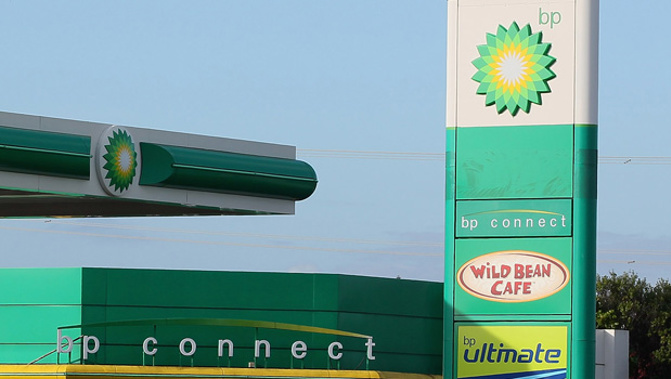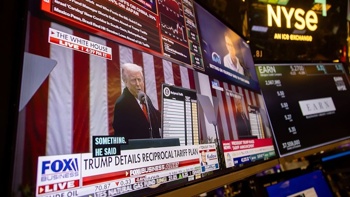
The Energy Minister, a National Party MP and the Automobile Association (AA) are calling for the fuel industry to be more transparent about its pricing after a leaked email from BP lifted the lid on the company's petrol pricing strategy.
In the email, BP pricing manager Suzanne Lucas outlined a plan to counter dwindling sales in Otaki, where the price of fuel was 20 cents more expensive than in nearby town Levin.
Instead of reducing the price in Otaki to make the station more competitive, Lucas proposed an increase of the fuel price across the entire region, with the expectation that competitors would match the new price.
"We have already increased all three sites mentioned by 5cpl [cents per litre] and have found that the Z [Energy station] in Paraparaumu has already matched our pricing," Lucas wrote in an email obtained by Stuff
"Over the next couple of weeks we will continue to try a number of tactics in the hope of reducing the pricing gap between Otaki and its surrounding regions."
Energy Minister Megan Woods says its important Kiwis know they're getting a fair deal at the pump, and it's concerning to see that isn't always the case.
She has called a face-to-face meeting with BP to discuss her concerns.
Jonathan Young, National's energy spokesman said the BP email was very concerning.
"I think the Commerce Commission would be very concerned about this as well."
Young said the best way to bring greater transparency to pricing was to carry out with National's proposal to change the Commerce Act to allow the Commerce Commission to undertake a market pricing review.
He stopped short of calling it cartel behaviour.
"On the face of it, it doesn't look like premeditated collusion but we are not seeing a competitive element as well."
The BP situation showed how important it would be to get the Commerce Commission to get in and determine the pricing mechanism.
Young said that have been an increase in the price of crude the last year and the New Zealand dollar had weakened.
"All that will have an effect on pushing the price up any way. What new Zealand needs to understand is whether there is a fair margin."
Mark Stockdale, the Automobile Association's spokesman on petrol pricing, said BP was moving in response to competition.
For BP, rather than matching the prices of the Otaki station to the rest of the area it had chosen to lift prices at stations around it because doing otherwise would not have been profitable, he said.
"They are just going to increase prices in other areas and hope they get away with it."
But he said the reality was there were plenty of other stations in that area.
"Will other stations match it - there is no reason why they should?"
Stockdale said there were no rules around setting the price of fuel in New Zealand as it was a deregulated market.
He said consumers expected the price to reflect the commodity price, exchange rate, taxes and a margin charged by the fuel company.
"But actually there is another element in there - there is a fifth element and that is competition."
Stockdale said there had been an increase in competition in recent years with the rise in low cost fuel retailers like Gull and Allied.
"And that has been a really good thing."
"But motorists drive around and see the variance and don't understand with the price differs. The industry doesn't explain how competition works."
He said motorists had a poor understanding of fuel pricing.
"I think fuel prices for motorists is a murky area, a lot of motorists don't know how fuel prices are determined. When they drive around and see different prices they don't understand why that is."
Stockdale said it made sense than an unmanned petrol station would have a lower price.
"That should be the industry norm."
But what happened was that manned stations tend to match the unmanned price because they are concerned they will lose business.
"They choose to match it and that is competition."
But he said those stations had higher costs and that meant they were charging more in other parts of the country to recover that lost margin resulting in consumers in Wellington and the South Island paying more.
He said companies should be telling consumers they were selling fuel at prices that were not sustainable and people were getting a good deal.
But they should also say prices were higher on other parts because they were cross-subsidising other parts of the country.
"Fuel companies should be doing a better job of explaining it."
Stockdale said it was difficult for the government to take strong action as setting a national fuel price would see prices in Wellington and the South Island fall a bit but prices in North Island would go up.
"Is that something the government would want to do?
One-third of the population lived in Auckland and more than half of the country's motorists were benefiting from lower prices.
"The reality is you are damned if you do and damned if you don't"
But he said the government meant could ask for more transparency around setting price and find out whether there were barriers to competitors setting up in Wellington and the South Island.
"It seems to us the barriers are cost. If there are barriers increasing competition is something the government could look at."
Stockdale said the biggest problem was not enough wholesale competition for fuel importation.
"Maybe more could be done to get fuel importers to enter the South Island."
But he said the number one thing should be transparency.
The government is already in the process of doing this by changing the Commerce Act to allow the Commerce Commission to undertake a market report.
Take your Radio, Podcasts and Music with you









